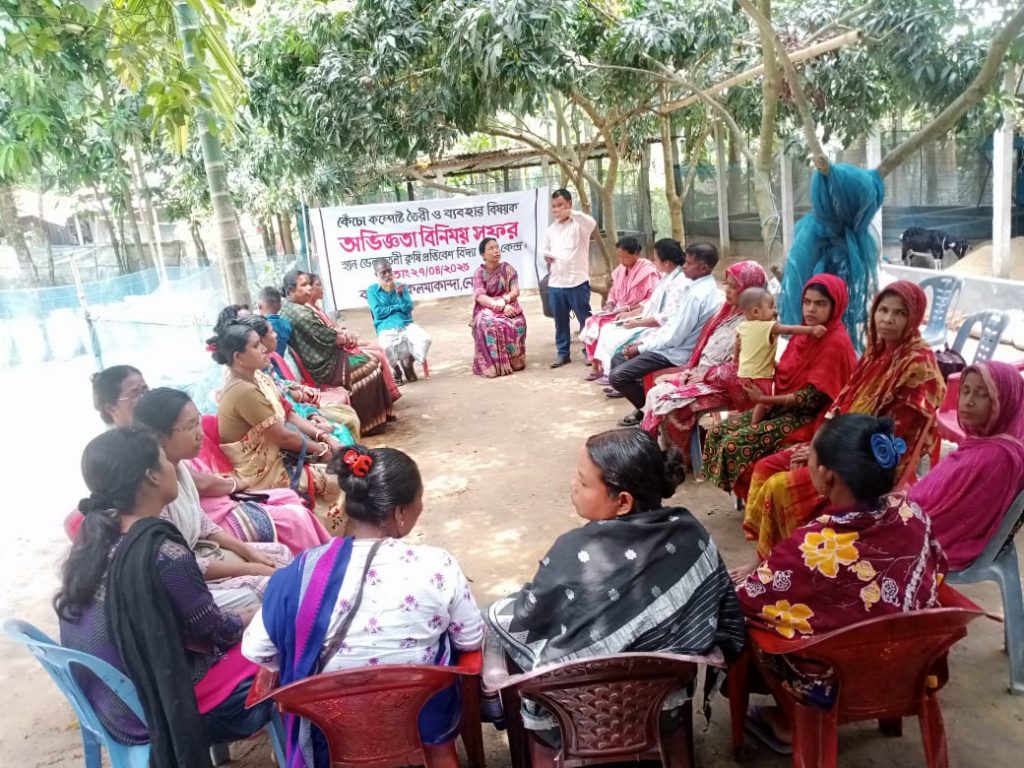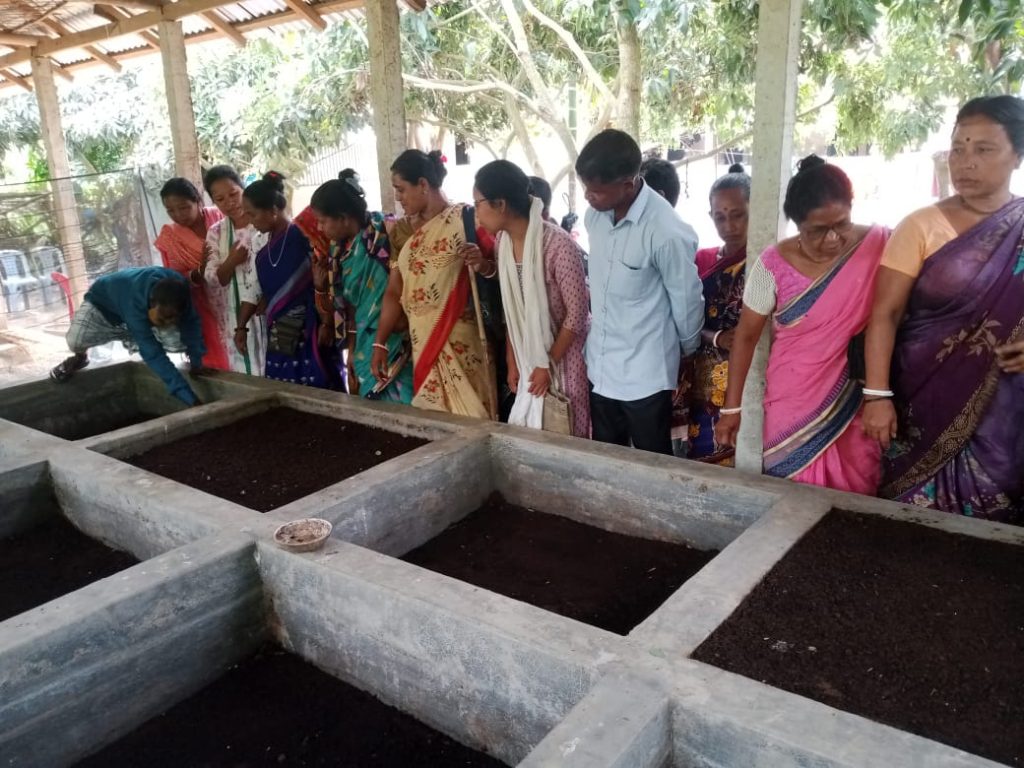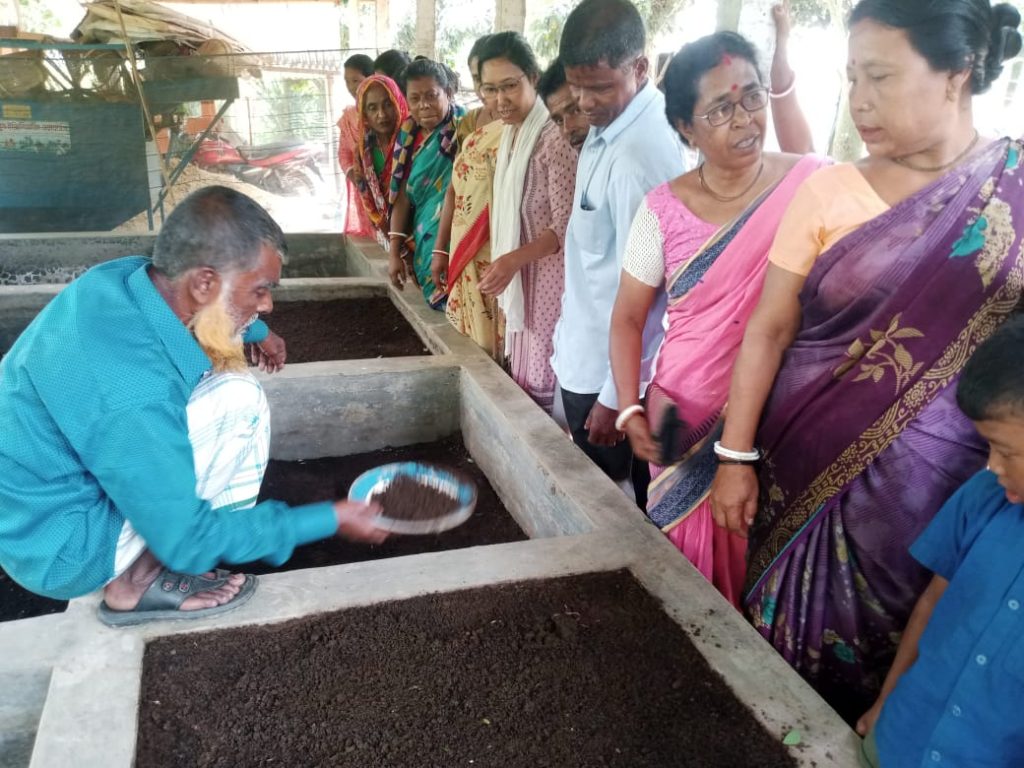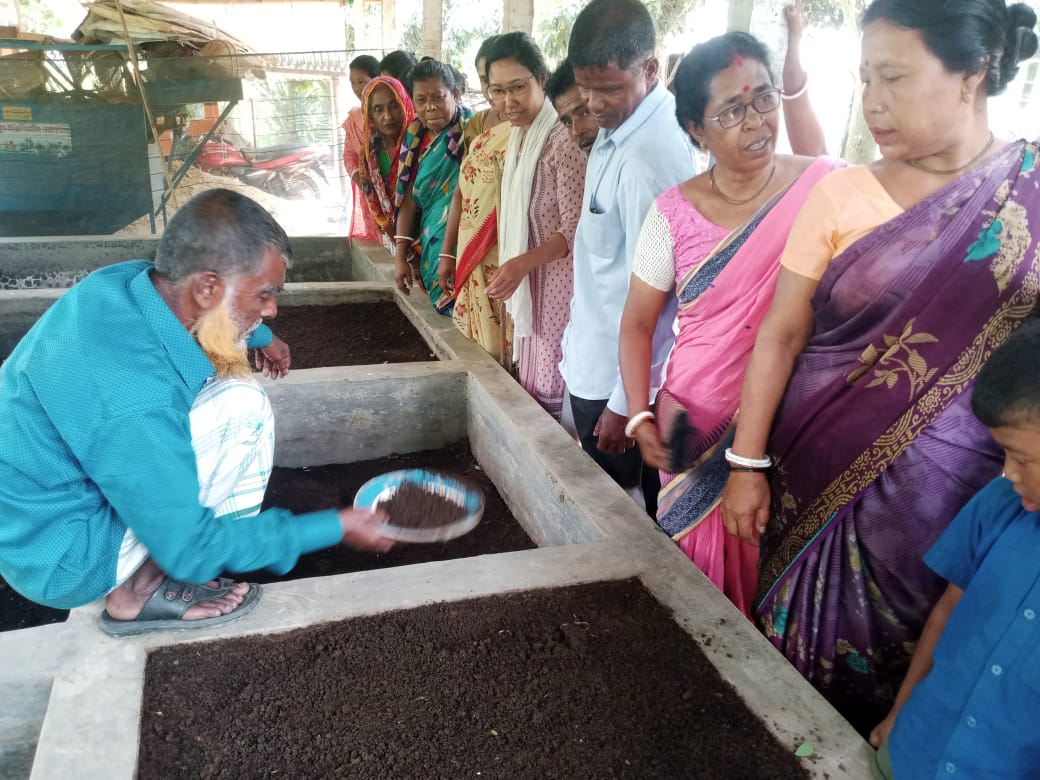Gunjon Rema from Kalmakanda, Netrakona
Vermicompost plays a crucial role in sustainable agricultural development and maintaining soil health. With the view to promote vermicompost, BARCIK organized an experience-sharing visit on “Vermicompost Production and Use” at the Veluatoli Agroecology Learning Center. A total of 20 enthusiastic farmers from seven villages participated in the event.

The visit began with participants touring the vermicompost production house at the Learning Center, led by BARCIK field facilitator Munna Rongdi. Following the tour, a discussion session was held, moderated by Alpana Nafak and chaired by Kamona Hajong. Gunjon Rema, Upazila Coordinator of BARCIK, outlined the objectives and significance of the visit. She explained the ideal conditions and materials for vermicompost production (such as cow dung, straw, banana stems, and kitchen organic waste), the method of preparing the compost beds, and techniques for collecting and preserving the compost.

Successful farmer Abdul Motaleb shared his practical experiences during the session. He explained how using vermicompost had improved his soil fertility, increased crop production, and reduced his dependency on chemical fertilizers. He also discussed how producing and selling vermicompost became an additional source of income for him.
Later, participants were given hands-on demonstrations of various stages of compost preparation. They learned how to set up a vermicompost house, the quantity and type of materials required, and how to identify when the compost is ready for harvest.
Expressing his realizations and enthusiasm farmer Porimal Rema said, “Previously, we could not imagine achieving good yields without chemical fertilizers. Today I realize that vermicompost can improve soil quality and help produce safe food.” Farmer Sushila Sarker mentioned, “I had only heard about vermicompost before. Now, after seeing the practical demonstration, I understand how easily it can be produced and how it boosts crop yields.” Kamona Hajong said, “I used to be afraid of earthworms! Now I understand they are friends of the soil. I will now rear earthworms to produce compost for my vegetable fields.”

The organizers stated that this experience-sharing visit has equipped farmers with practical skills in organic farming methods, which will contribute to making local agriculture more sustainable and eco-friendly. BARCIK officials also mentioned plans to organize more such activities in the future.

